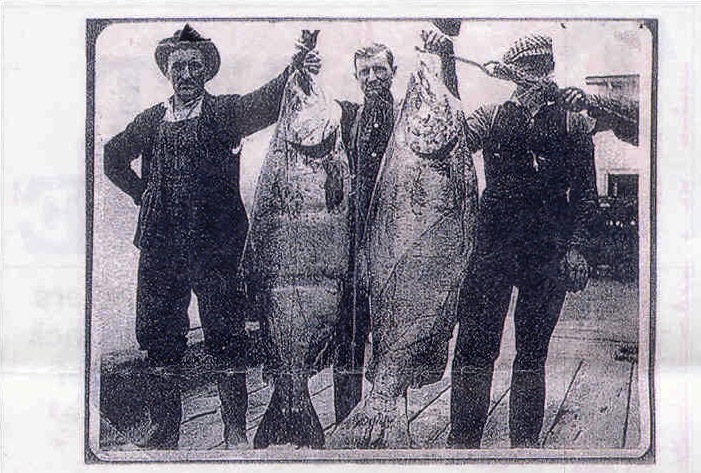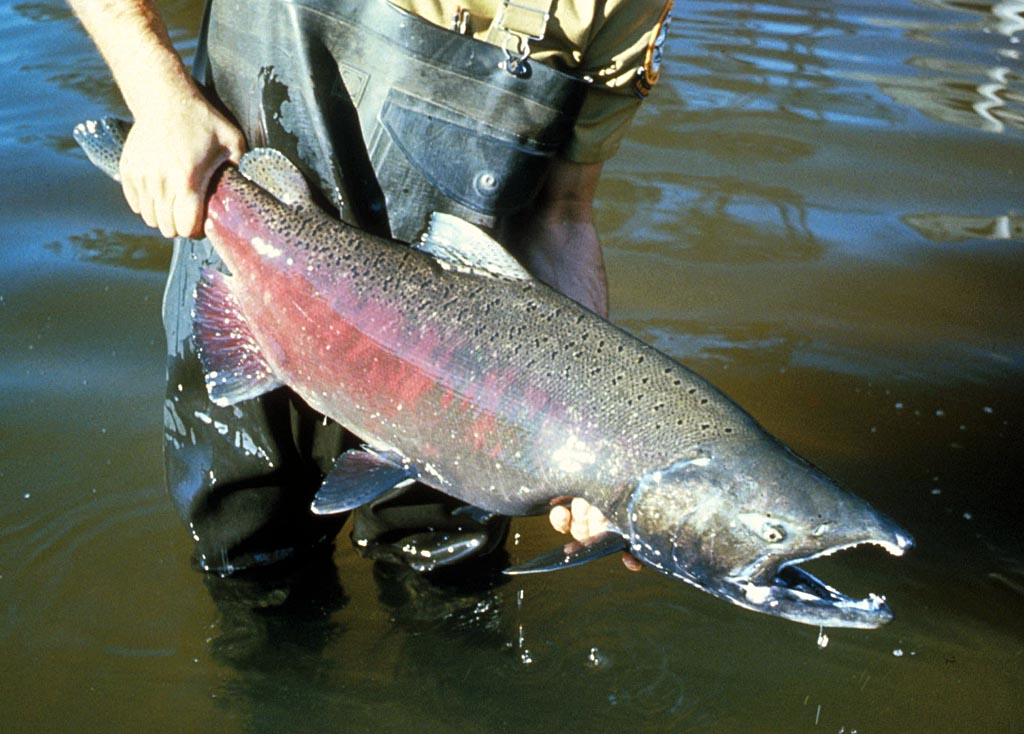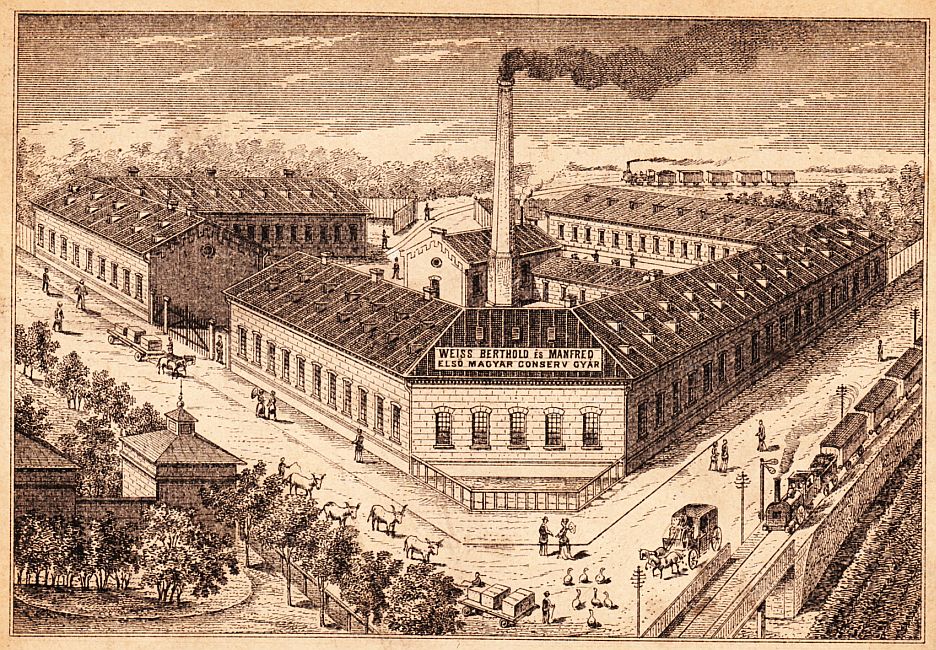|
June Hogs
In the parlance of the Pacific Northwest of the United States, June hogs were the largest Chinook salmon caught in the summer migratory runs of the fish. Often weighing at , and as large as a small person, these enormous salmon were once harvested regularly each summer by First Nations in Canada, First Nations peoples, Sport fishing, sportfishers, and Canning, salmon canneries on the Columbia River and its tributaries, but have now disappeared due to the decline of salmon runs in general; today the largest Chinooks caught in the same runs are half the size. June hogs were said to be a line of ''supersalmon''. These ''supersalmon'' were capable of swimming over up the Columbia River and into Canada. The name "June hog" derives from the seasonality of the runs and their size. It is said that these Chinook salmon had massive amounts of energy reserves. They also produced large amounts of offspring. Bob Heinith of the Columbia River Inter-Tribal Fish Commission stated that June hogs mo ... [...More Info...] [...Related Items...] OR: [Wikipedia] [Google] [Baidu] |
Chinook Salmon, Astoria Oregon Circa 1910
Chinook may refer to: Languages *Chinookan peoples, several groups of Indigenous people of the U.S. Pacific Northwest *Chinookan languages, a small family of languages spoken by Chinook peoples **Lower Chinook **Upper Chinook language **Chinook Jargon, a nearly extinct American indigenous language * Billy Chinook (born c. 1827), a chief and member of the Wasco tribe Places *Chinook, Alberta, a hamlet in southern Alberta, Canada **Chinook (provincial electoral district) *Chinook, Montana, a city in Blaine County, Montana, U.S. *Chinook, Washington, a census-designated place in Pacific County, Washington, U.S *Chinook (crater), on Mars *Chinook Pass, a pass through the Cascade Range in the Washington, U.S. *Chinook Peak, a summit in Mount Rainier National Park, Washington, U.S. *Chinook Scenic Byway, part of State Route 410 in Washington, U.S. *Chinook oilfield, a former name of Peregrino oilfield, Brazil Science *Chinook cherry, a cherry cross-breed *Chinook (dog), a rare breed o ... [...More Info...] [...Related Items...] OR: [Wikipedia] [Google] [Baidu] |
Pacific Northwest
The Pacific Northwest (sometimes Cascadia, or simply abbreviated as PNW) is a geographic region in western North America bounded by its coastal waters of the Pacific Ocean to the west and, loosely, by the Rocky Mountains to the east. Though no official boundary exists, the most common conception includes the U.S. states of Oregon, Washington (state), Washington, and Idaho, and the Canadian province of British Columbia. Some broader conceptions reach north into Alaska and Yukon, south into northern California, and east into western Montana. Other conceptions may be limited to the coastal areas west of the Cascade Mountains, Cascade and Coast Mountains, Coast mountains. The variety of definitions can be attributed to partially overlapping commonalities of the region's history, culture, geography, society, ecosystems, and other factors. The Northwest Coast is the coastal region of the Pacific Northwest, and the Northwest Plateau (also commonly known as "British Columbia Interi ... [...More Info...] [...Related Items...] OR: [Wikipedia] [Google] [Baidu] |
Chinook Salmon
The Chinook salmon (''Oncorhynchus tshawytscha'') is the largest and most valuable species of Pacific salmon in North America, as well as the largest in the genus ''Oncorhynchus''. Its common name is derived from the Chinookan peoples. Other vernacular names for the species include king salmon, Quinnat salmon, Tsumen, spring salmon, chrome hog, Blackmouth, and Tyee salmon. The scientific species name is based on the Russian common name ''chavycha'' (чавыча). Chinook are anadromous fish native to the North Pacific Ocean and the river systems of western North America, ranging from California to Alaska, as well as Asian rivers ranging from northern Japan to the Palyavaam River in the Arctic northeast Siberia. They have been introduced to other parts of the world, including New Zealand, thriving in Lake Michigan Great Lakes of North America and Michigan's western rivers, and Patagonia. A large Chinook is a prized and sought-after catch for a sporting angler. The flesh of the ... [...More Info...] [...Related Items...] OR: [Wikipedia] [Google] [Baidu] |
Portland State University
Portland State University (PSU) is a public research university in Portland, Oregon. It was founded in 1946 as a post-secondary educational institution for World War II veterans. It evolved into a four-year college over the following two decades and was granted university status in 1969. It is the only public university in the state of Oregon that is located in a large city. It is governed by a board of trustees. PSU is classified among "R2: Doctoral Universities – High research activity". Portland State is composed of seven constituent colleges, offering undergraduate degrees in one hundred twenty-three fields, and postgraduate degrees in one hundred seventeen fields. Schools at Portland State include the School of Business Administration, College of Education, School of Social Work, College of Urban and Public Affairs, College of the Arts, Maseeh College of Engineering and Computer Science, and the College of Liberal Arts and Sciences. The athletic teams are known as the Por ... [...More Info...] [...Related Items...] OR: [Wikipedia] [Google] [Baidu] |
First Nations In Canada
First Nations (french: Premières Nations) is a term used to identify those Indigenous Canadian peoples who are neither Inuit nor Métis. Traditionally, First Nations in Canada were peoples who lived south of the tree line, and mainly south of the Arctic Circle. There are 634 recognized First Nations governments or bands across Canada. Roughly half are located in the provinces of Ontario and British Columbia. Under Charter jurisprudence, First Nations are a "designated group," along with women, visible minorities, and people with physical or mental disabilities. First Nations are not defined as a visible minority by the criteria of Statistics Canada. North American indigenous peoples have cultures spanning thousands of years. Some of their oral traditions accurately describe historical events, such as the Cascadia earthquake of 1700 and the 18th-century Tseax Cone eruption. Written records began with the arrival of European explorers and colonists during the Age of Dis ... [...More Info...] [...Related Items...] OR: [Wikipedia] [Google] [Baidu] |
Sport Fishing
Recreational fishing, also called sport fishing or game fishing, is fishing for leisure, exercise or competition. It can be contrasted with commercial fishing, which is professional fishing for profit; or subsistence fishing, which is fishing for survival and livelihood. The most common form of recreational fishing is angling, which is done with a rig of rod, reel, line, hooks and any one of a wide range of baits, as well as other complementary devices such as weights, floats, swivels and method feeders, collectively referred to as '' terminal tackles''. Lures are frequently used in place of fresh bait when fishing for predatory fishes. Some hobbyists hand-make custom tackles themselves, including plastic lures and artificial flies. Other forms of recreational fishing include spearfishing, which is done with a speargun or harpoon usually while diving; and bowfishing, with is done from above the water with archery equipments such as a compound bow or crossbow. Noo ... [...More Info...] [...Related Items...] OR: [Wikipedia] [Google] [Baidu] |
Canning
Canning is a method of food preservation in which food is processed and sealed in an airtight container (jars like Mason jars, and steel and tin cans). Canning provides a shelf life that typically ranges from one to five years, although under specific circumstances, it can be much longer. A freeze-dried canned product, such as canned dried lentils, could last as long as 30 years in an edible state. In 1974, samples of canned food from the wreck of the ''Bertrand'', a steamboat that sank in the Missouri River in 1865, were tested by the National Food Processors Association. Although appearance, smell, and vitamin content had deteriorated, there was no trace of microbial growth and the 109-year-old food was determined to be still safe to eat. History and development French origins During the first years of the Napoleonic Wars, the French government offered a hefty cash award of 12,000 francs to any inventor who could devise a cheap and effective method of preserving l ... [...More Info...] [...Related Items...] OR: [Wikipedia] [Google] [Baidu] |
Columbia River
The Columbia River (Upper Chinook: ' or '; Sahaptin: ''Nch’i-Wàna'' or ''Nchi wana''; Sinixt dialect'' '') is the largest river in the Pacific Northwest region of North America. The river rises in the Rocky Mountains of British Columbia, Canada. It flows northwest and then south into the U.S. state of Washington, then turns west to form most of the border between Washington and the state of Oregon before emptying into the Pacific Ocean. The river is long, and its largest tributary is the Snake River. Its drainage basin is roughly the size of France and extends into seven US states and a Canadian province. The fourth-largest river in the United States by volume, the Columbia has the greatest flow of any North American river entering the Pacific. The Columbia has the 36th greatest discharge of any river in the world. The Columbia and its tributaries have been central to the region's culture and economy for thousands of years. They have been used for transportation since a ... [...More Info...] [...Related Items...] OR: [Wikipedia] [Google] [Baidu] |
Canada
Canada is a country in North America. Its ten provinces and three territories extend from the Atlantic Ocean to the Pacific Ocean and northward into the Arctic Ocean, covering over , making it the world's second-largest country by total area. Its southern and western border with the United States, stretching , is the world's longest binational land border. Canada's capital is Ottawa, and its three largest metropolitan areas are Toronto, Montreal, and Vancouver. Indigenous peoples have continuously inhabited what is now Canada for thousands of years. Beginning in the 16th century, British and French expeditions explored and later settled along the Atlantic coast. As a consequence of various armed conflicts, France ceded nearly all of its colonies in North America in 1763. In 1867, with the union of three British North American colonies through Confederation, Canada was formed as a federal dominion of four provinces. This began an accretion of provinces an ... [...More Info...] [...Related Items...] OR: [Wikipedia] [Google] [Baidu] |
Salmon
Salmon () is the common name for several list of commercially important fish species, commercially important species of euryhaline ray-finned fish from the family (biology), family Salmonidae, which are native to tributary, tributaries of the North Atlantic (genus ''Salmo'') and North Pacific (genus ''Oncorhynchus'') basin. Other closely related fish in the same family include trout, Salvelinus, char, Thymallus, grayling, Freshwater whitefish, whitefish, lenok and Hucho, taimen. Salmon are typically fish migration, anadromous: they hatch in the gravel stream bed, beds of shallow fresh water streams, migrate to the ocean as adults and live like sea fish, then return to fresh water to reproduce. However, populations of several species are restricted to fresh water throughout their lives. Folklore has it that the fish return to the exact spot where they hatched to spawn (biology), spawn, and tracking studies have shown this to be mostly true. A portion of a returning salmon run ma ... [...More Info...] [...Related Items...] OR: [Wikipedia] [Google] [Baidu] |



_-_Ystad-2018.jpg)

